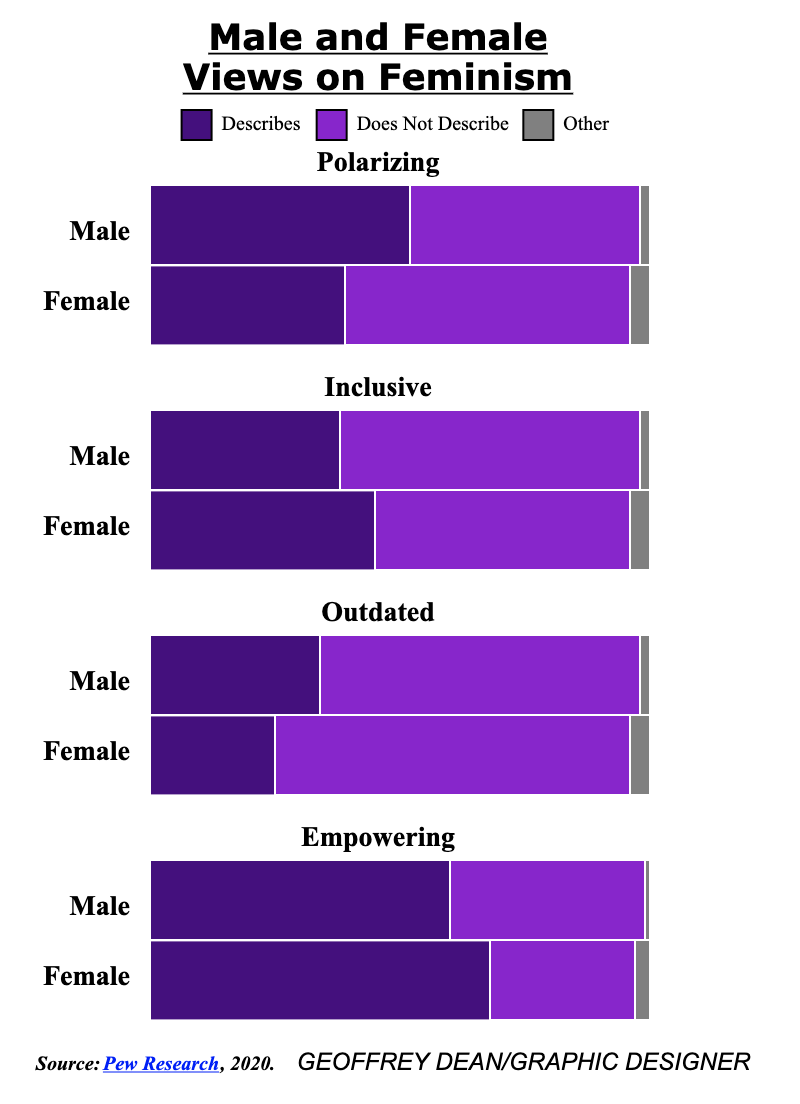_Sydney Lewis is a first-year journalism and political science major at MU. She is an opinion columnist who writes about politics and identity for The Maneater._
One day after President Donald Trump was elected in 2016, several women from across the country came together to form what is now the Women’s March organization. The organization attracted millions of participants worldwide at its inaugural march on Jan. 21, 2017. Every year since, thousands of people have attended subsequent marches. This year, several Women’s Marches were hosted on Oct. 17 in cities across the country.
Over time, the organization, which was intended to draw together a mass movement of women, has drawn criticism for its role in potentially harming the feminist movement. It’s been criticized for catering to white women and using women of color as tokens of diversity. The Women’s March, however, is a symptom of a greater issue within the feminist movement: neoliberal feminism.
The rise of neoliberal feminism as an accurate perception of feminist goals gives a distorted image of what feminism really means. Neoliberal feminism addresses that women face systemic inequalities, but calls on self-determination and independence as a solution. While women should be encouraged and allowed to be entrepreneurs of their own lives, it’s impossible to separate feminism from neoliberal economics.
“Neoliberal feminism ultimately directs its address to the middle and upper-middle classes, effectively erasing the vast majority of women from view,” Catherine Rottenberg wrote in The Independent in 2018.
Mainstream American feminism has become white feminism — focused on making white women equal to white men. This type of feminism fails to address the intersectionality of race and gender.
As Monnica Williams, an associate professor at the University of Connecticut, suggests, feminism has historically been entangled with white supremacy. Feminism and the modern feminist movement has the potential to secure equality for women around the world, but the work is stunted by cisgender white women who prioritize their own comfort over intersectionality and equality for all women.
“True feminism has the power to transform society, but too often what is advanced as feminism is actually white supremacy in disguise – a counterfeit we sometimes call White Feminism,” Williams wrote.
One of the slogans adopted around the upstart of the Women’s March is “The Future is Female.” This statement was intended to empower women to see themselves as powerful stakeholders in the future of our country. All it did was contribute to the erasure of trans and queer people from feminist spaces.
The term “female” refers to biological sex, which is vastly different from gender. Some feminists determine who should be included in the movement based on sex, not gender, with the intention of excluding transgender women.
TERFs, trans-exclusionary radical feminists, have created their own faction of feminism. These feminists, if you can even call them that, intentionally exclude queer and trans women from their fight for equality.
Among the most recent examples of trans-exclusionary radical feminism is J.K. Rowling, author of the Harry Potter series. Rowling has recently come under fire for several transphobic tweets. In one tweet, she mocked the phrase “people who menstruate,” a phrase that is meant to negate the assumption that all people with vaginas are women and all women have vaginas.
TERFs refer to themselves as “gender critical,” which Vox claims can be compared to white supremacists calling themselves “race realists.”
These prevalent and exclusionary definitions of feminism are not small sections of feminist spaces — they are often perpetuated by the people in control of mainstream feminism.
On MU’s campus, the Women’s Center is a potential resource for all people. Their lounge is “open to everyone: students, staff, faculty and community; women, transgender and gender non-conforming folks and men.”
The center also highlights the importance of intersectionality within women’s spaces and provides resources and opportunities for Black women and women with children. Though they make attempts to be inclusive, the issues that pervade American feminism are clearly ingrained in the Women’s Center as well.
Despite being open to all, they use the term “herstory,” which assumes that all women and people within the feminist movement use she/her pronouns. Every year the center performs a play titled “The Vagina Monologues,” which fails to acknowledge that not all women have vaginas.
The Women’s Center declined to comment on what they are doing to be inclusive of transgender women and non-binary people. They redirected the question to the MU News Bureau who did not respond.
These small discrepancies can easily turn a well-intended feminist space into a space where not everyone feels welcome.
Not only does feminism have a negative connotation to many people in the U.S., but it’s also fighting battles within itself.
There is no way for feminism to move forward without women of color, trans women, non-binary people, queer women and women with disabilities centered in the movement.
_As part of its commitment to highlighting organizations fighting for racial justice, the Maneater is encouraging readers to donate to the Solutions Not Punishment Collaborative, “a black trans and queer led organization that builds safety within our community, investing in our collective embodied leadership and building political power.” Donate at: https://www.paypal.com/donate/?cmd=_s-xclick&hosted_button_id=EPH7USQP5L9RG&source=url._
_Edited by Sofi Zeman | [email protected]_














